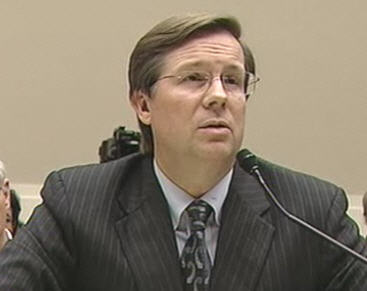Toyota recalls: Is there a patch day for your car in the future?

I listened to a Congressional hearing over the Toyota recall and thought I stumbled into a discussion about tech hurdles like change management, patch day and other wonky topics.
Let's rev our engines for patch days for your cars. Are smarter cars really worth the hassle?
The House Oversight and Government Reform Committee hearings on the Toyota recalls boiled down to one big question: How do we fix technologically advanced cars on the fly?
House Energy and Commerce committee chairman Henry Waxman (D-Calif.) set the tone at the beginning of Tuesday’s hearings. He kicked off the hearings by saying “cars have become moving computers. The increased reliance on new electronics brings new risks and they need to be examined.”
And examine they did. Like most Congressional hearings, there was a good bit of showboating. Experts were probed for conflict of interests. Victims of Toyota glitches were brought to the fore. And Toyota execs were generally kicked around.
Related: Smart Planet: Toyota begins battle to restore confidence with systems overhaul
- Smart Planet: Toyota issues software patch for Prius; Do autos need to adopt IT best practices?
- ZDNet: Toyota's Prius problems: Software, hardware and the future of motoring
- CBS News: Toyota: Recall's Success No Sure Bet
- Live video
But when you strip out all the grandstanding and mumbo jumbo you heard a lot about technical issues. Toyota defended its electronics. Lawmakers picked them apart.

We are confident that no problems exist with the electronic throttle control system in our vehicles. We have designed our electronic throttle control system with multiple fail?safe mechanisms to shut off or reduce engine power in the event of a system failure. We have done extensive testing of this system and have never found a malfunction that caused unintended acceleration.
Additionally, in December we asked Exponent, a world?class engineering and scientific consulting firm, to conduct a comprehensive, independent analysis of our electronic throttle control system with an unlimited budget. Their interim report confirms that it works as designed. Toyota will make the results of this comprehensive evaluation available to the public when it is completed.
Lawmakers and government officials weren’t buying Lentz’s take.
U.S. Transportation Secretary Ray LaHood said the National Highway Traffic Safety Administration hasn’t found any electronic problems, but will do a “thorough review” of the use of electronics in automobiles.
Sean Kane, founder and president of Safety Research and Strategies, told lawmakers that there are questions that remain to be resolved about the use of electronics. “How do we patch? What are the technological problems?” Kane asked.
David Gilbert, Southern Illinois University automotive technology professor, said that fail-safe technology “falls short of where it needs to be.”
The problem: What may be a technologically OK rate of failure rate for an operating system, consumer electronics device or other gadget won’t cut it for an automobile. It may be time to yearn for those old mechanical cars.